Caviar Diplomacy - How Azerbaijan silenced the Council of Europe
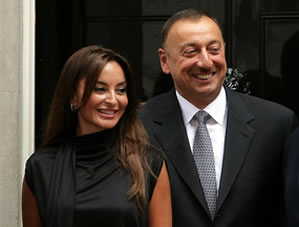 |
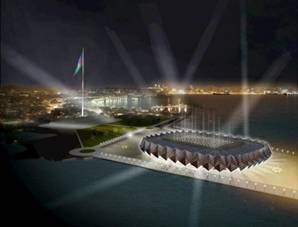 |
|
|
Ilham Aliyev – Crystal Palace in Baku |
||
Dear friends of ESI,
A new ESI report Caviar Diplomacy: How Azerbaijan Silenced the Council of Europe Part One – which was published today describes how an authoritarian regime in Baku has managed to sidestep its commitments to the Council of Europe, silenced its critics and turned international election monitoring into political theatre.
This is the story of how Europe's oldest human rights organisation has been neutered by a smart and ruthless policy. Azerbaijani officials referred to it as "caviar diplomacy": a policy that began in 2001, not long after Azerbaijan joined the Council of Europe, the continent's club of democratic nations. It gathered speed after Ilham Aliyev, who had served in the Council of Europe's parliamentary assembly (PACE), became president of Azerbaijan in 2003. Once the Baku-Tbilisi-Ceyhan oil pipeline was completed in 2005 and the Azerbaijani state coffers were awash in oil revenues, the "caviar policy" shifted into top gear.
The aim was to win and retain the stamp of legitimacy conferred by Council of Europe membership while preserving the authoritarian structures of an autocratic regime. Azerbaijan has not held a single competitive election since Heydar Aliyev, the father of current president Ilham Aliyev, came to power in 1993, following a coup against the first elected president. The Central Election Commission, in charge of organising elections, has stacked the deck so firmly in favour of the incumbent government that no political competition is possible, fair or otherwise. In the parliamentary election of 2010, not a single opposition candidate managed to win a seat.
How, then, could the head of the PACE election observation mission in 2010 declare that the elections had met international and Council of Europe standards? Why, when the human rights situation has steadily deteriorated since 2003, has debate in PACE on Azerbaijan become ever more anodyne, even complimentary?
 |
 |
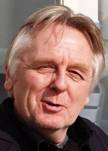 |
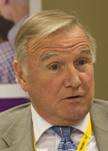 |
 |
|
|
Critics: Andreas Gross – Andres Herkel – Leo Platvoet – Malcolm Bruce – Christoph Strasser |
|||||
Beneath the institutional failure, it is also a story about individuals and the difference they can make, for better or worse, within institutions like the Council of Europe. The cast of this story – the critics and the apologists – are Swiss, Belgian, British, German, Spanish and Turkish; they are liberals, social democrats, conservatives, nationalists and former communists. In Azerbaijan too many of them have betrayed the values and traditions set out in the European Convention on Human Rights. The result may well be the most serious crisis of legitimacy in the history of the Council of Europe.
 |
 |
 |
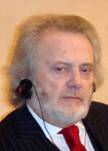 |
 |
|
|
Apologists: Joseph Debono Grech – Pedro Agramunt – Paul Wille – Mike Hancock – Eduard Lintner |
|||||
When Azerbaijan was admitted to the Council of Europe, despite well documented democratic failings, it was with the idea that Council of Europe membership would gradually transform Azerbaijan. Sadly, the reverse has occurred. The outcome is a tragedy for the citizens of Azerbaijan, particularly those brave pro-democracy activists who languish in jail as political prisoners. But it is also a tragedy for Europe, whose values have been trampled. For the PACE parliamentarians enjoying the benefits of caviar diplomacy are also sitting members of national parliaments across Europe. And it is certainly a tragedy for the Council of Europe itself, which urgently needs to recover the values its founders entrusted it with if it is to justify its continued existence.
Many best wishes,

Gerald Knaus
- ESI report: Generation Facebook in Baku. Adnan, Emin and the Future of Dissent in Azerbaijan (2011)
- BBC Panorama, "Eurovision's Dirty Secret" (video), 22 May 2012
- The Foreign Policy Centre, Spotlight on Azerbaijan, ed. by Adam Hug. London, May 2012
- Article 19, Running Scared: Azerbaijan's Silenced Voices, 26 March 2012
- Human Rights Watch, "They Took Everything from Me": Forced Evictions, Unlawful Expropriations, and House Demolitions in Azerbaijan's Capital, 29 February 2012
- Amnesty International, "Azerbaijan: No more running scared", 20 February 2012
